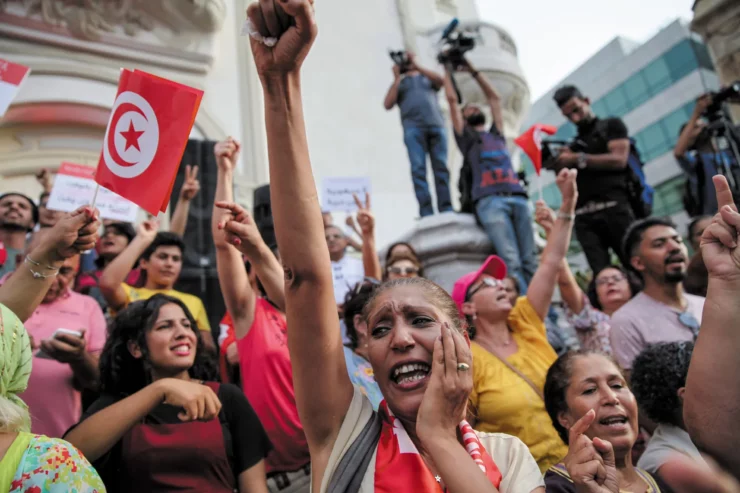
Tunisia has recently experienced some escalation of the internal political crisis caused by the activities of President K. Saied aimed at strengthening his authoritarian regime and the accumulation in this regard of contradictions between the presidential administration and the country’s military leaders, which traditionally enjoys strong authority among the country’s population.
As a fundamental step towards strengthening his political positions, K. Saied amended the country’s Constitution that would expand his powers and allow the president to limit the authority of other branches of government and the opposition.
Saied was accused by opposition forces of violations during the plebiscite vote and speculation regarding the protection of national interests. Against this background, President Saied responded quickly and harshly by arresting opposition politicians in the country and initiating criminal cases against opponents of the current government. Famous journalists, politicians, major businessmen and lawyers accused of corruption and money laundering are among the victims of the presidential “aggression”.
Such official Tunisia’s actions caused the opposition to respond with “street methods”, namely mass demonstrations, strikes and acts of civil disobedience. The main slogans of Saied’s opponents concerned the deterioration of the socio-economic situation, rising inflation, and shortages of essential goods. Moreover, the situation is complicated by a significant depreciation of the national currency, a growing public debt and the president’s rejection of an IMF loan of $1.9 billion.
Another aggravating factor in the country is the escalation in the Sahara-Sahel zone against the backdrop of a series of coups in Burkina Faso and Niger, as well as the problem of illegal migration from sub-Saharan countries through Tunisia to the EU.
This potential crisis situation in Tunisia raises concerns in the European community due to the threat of a growing migration crisis. According to Europeans, the events taking place in Tunisia could get out of the control of the authorities and lead to a “social explosion.” At the same time, according to EU political analysts, K. Saied still retains his position thanks to the sympathy of a certain part of the population, which is repelled by the radical Islamist views of opposition representatives, as well as the president’s control over the country’s parliament.
EU members, however, analyze the current balance of power in Tunisia from the standpoint of preserving their influence in the country and the region as a whole, as well as possible damage to their investments in the country. At the same time, there are some disagreements among EU members in the interpretation of the events taking place in Tunisia and the actions of President Saied, which reduces the degree of Western influence on him. In particular, France is demanding significant political and economic reforms from Tunisia, while Italy is seeking to provide assistance to Tunisia on more lenient terms. In addition, the EU focuses on supporting opposition leaders and attaches importance to the development of informal contacts with them, as well as business circles and representatives of civil society, as part of the so-called “democratization” of the country.
Westerners also fear for the fate of their previously allocated investments in support of Tunisia in the amount of $1.4 billion. In addition, the West is dissatisfied with Tunisia’s foreign policy, including Saied’s search for alternative international partners to replace the Europeans and Americans, especially the Russian Federation. In this regard, the West, guided by the logic and practice of neocolonialism, is trying to increase its efforts to oust Russia from the country by working with the opposition to remove the “unwanted regime” of K. Saied and strengthen its position in the region.
Madi Khalis Maalouf, political commentator, exclusively for the internet journal “New Eastern Outlook”.